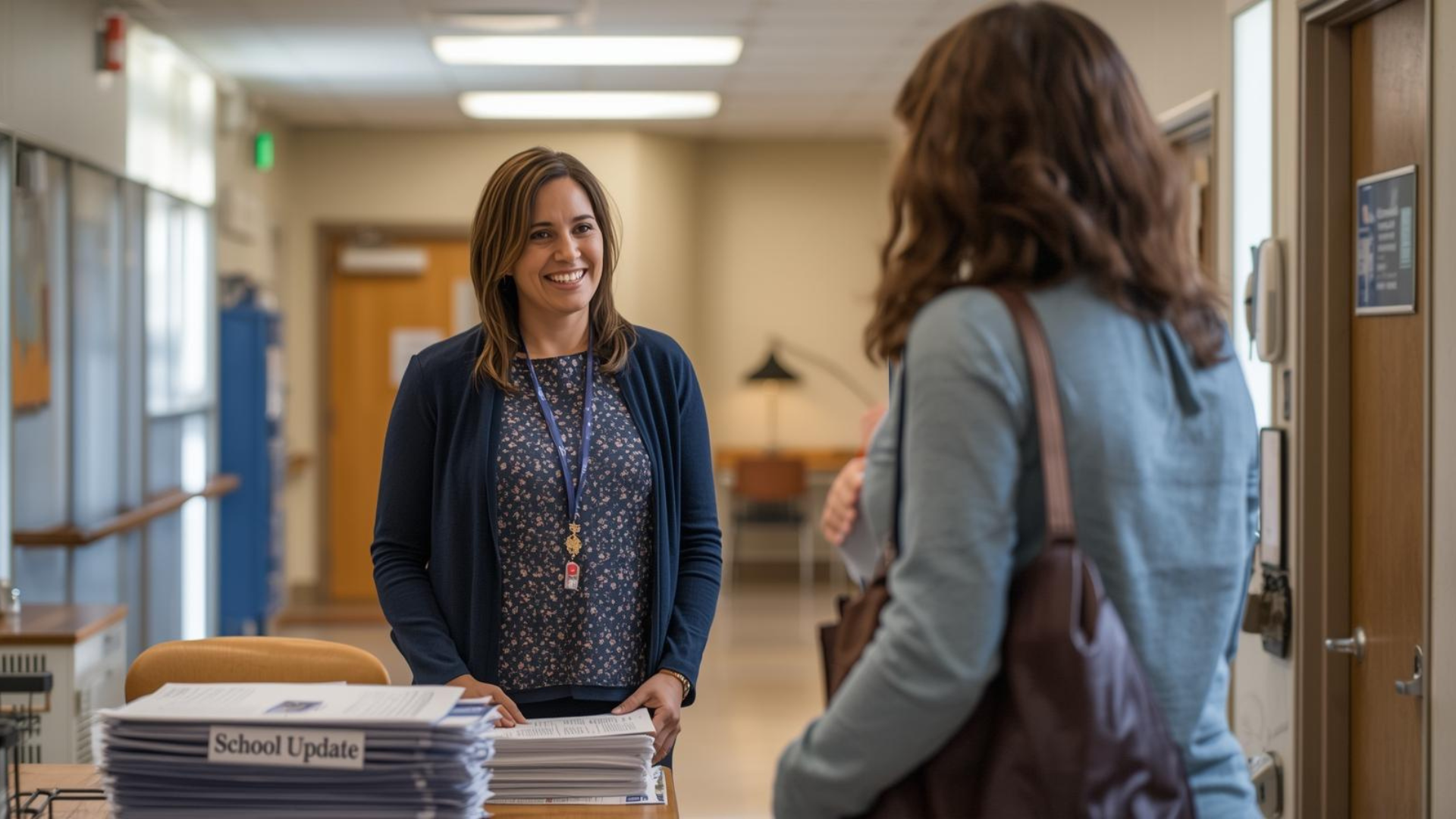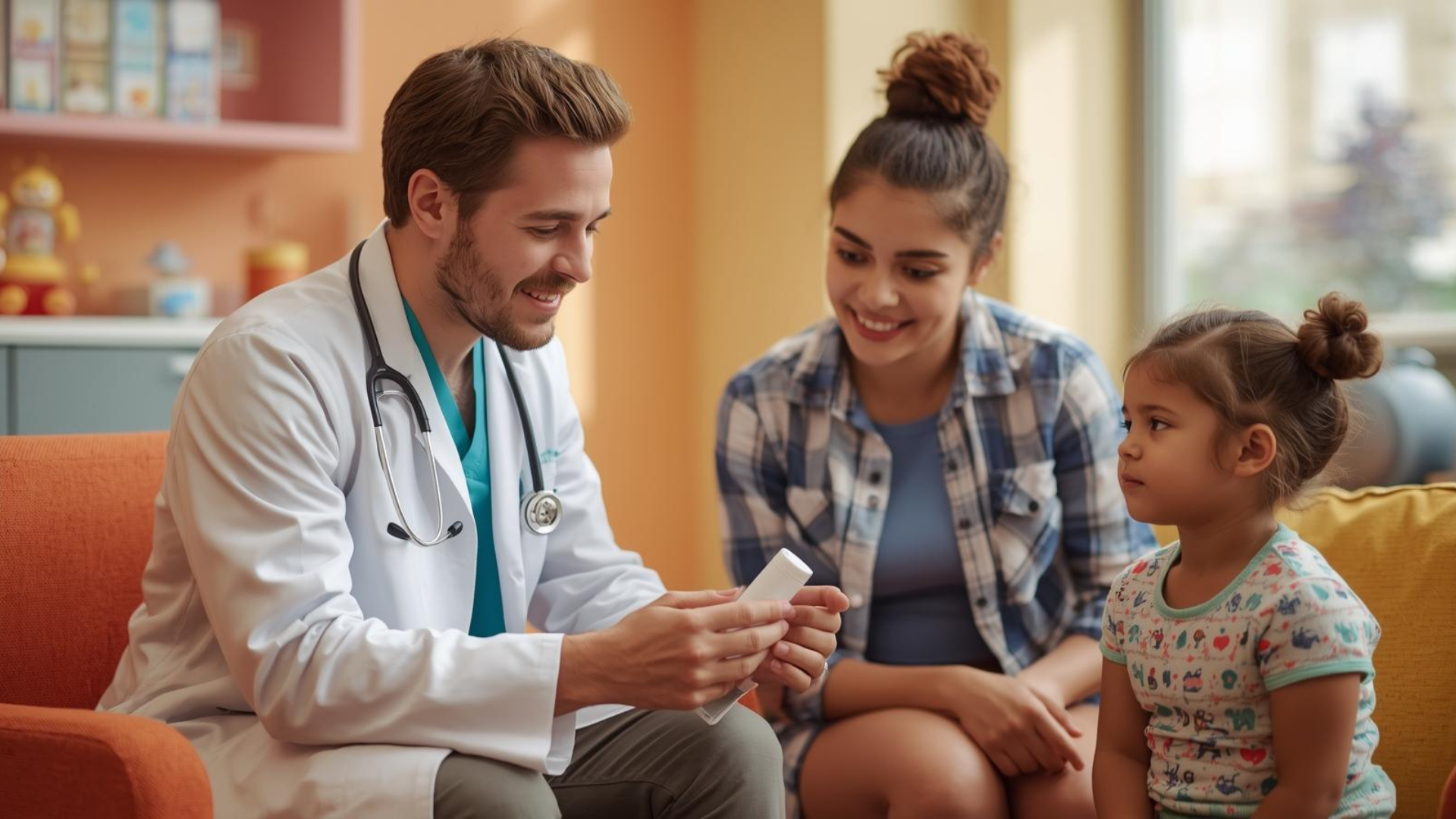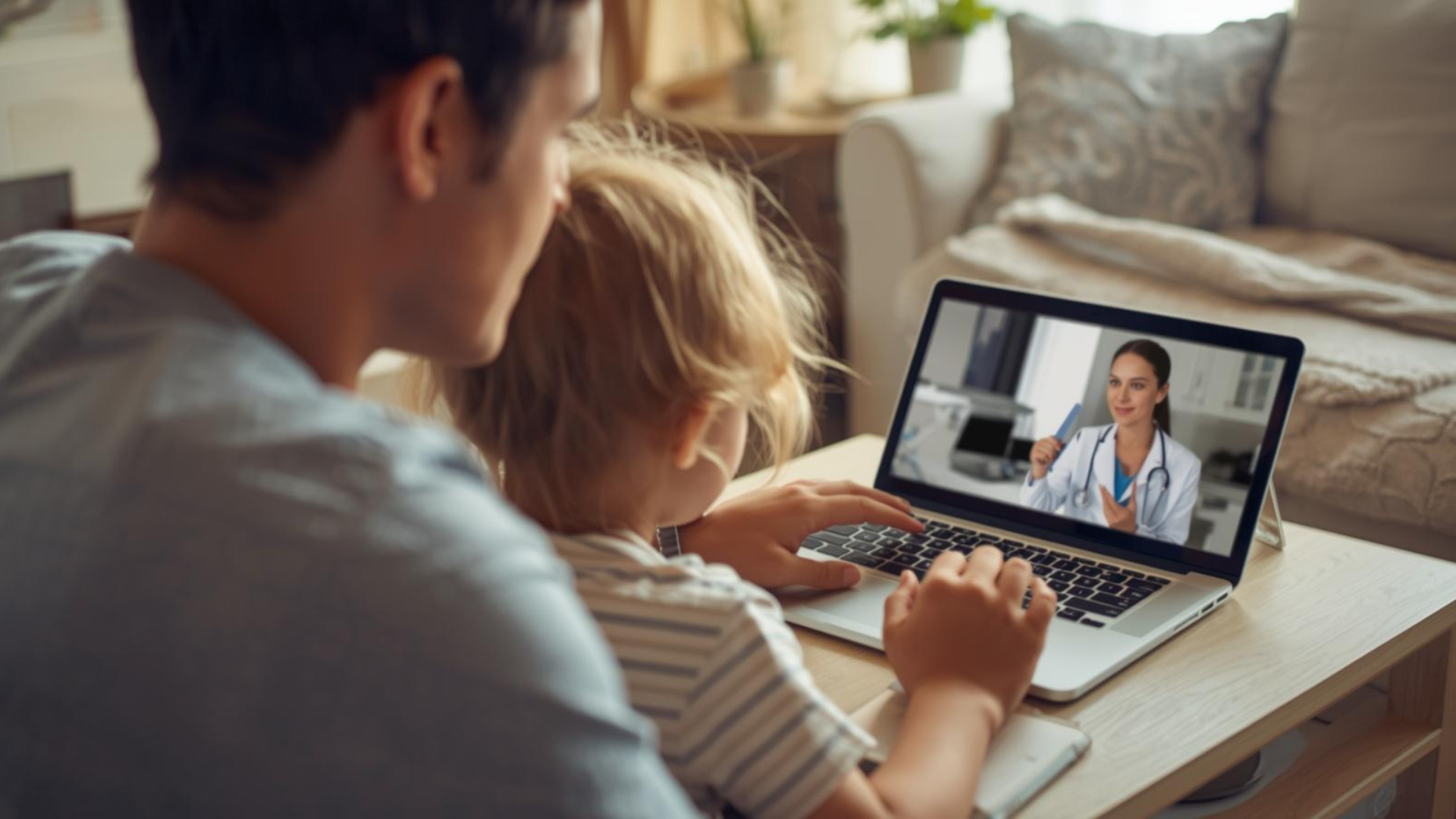Parent-teacher night gives families the perfect chance to talk about how their school handles lice. Because policies can differ from one district to another, some sending kids home right away, others allowing them to stay after treatment, it’s important to understand the approach at your child’s school. This is also a great time to ask about prevention routines, classroom screenings, and how parents are notified if lice are discovered.
Parent-teacher night is that wonderful mix of excitement and a little bit of nervous energy for parents everywhere. You’re heading into the classroom, eager to hear how your child is doing, meet the teacher, and maybe peek at some artwork taped to the wall.
But here’s something many parents overlook: this event is also the perfect time to talk about one of the most common and quietly stressful issues in schools, head lice.
It might not be the most glamorous topic, but discussing lice policies early on can save families a lot of panic later. Every school handles lice a little differently, and knowing what to expect helps parents, teachers, and kids feel prepared and confident if it ever happens.
In this guide, we’ll walk you through why parent-teacher night is a great time to bring up lice policies, what to ask, how to approach the topic comfortably, and what the Centers for Disease Control and Prevention (CDC) actually says about lice in schools.
Let’s make lice conversations as easy and stress-free as possible, because knowledge really does stop the itch before it starts.
Why Lice Policies Matter
Head lice are as common as forgotten lunchboxes and missing socks. The American Academy of Pediatrics (AAP) estimates that millions of U.S. children get lice each year. Lice don’t spread disease, but they do spread quickly through close contact, especially in schools where kids share space (and sometimes hats, headphones, or hoodies).
Since lice outbreaks can happen anywhere, schools set their own rules about detection, treatment, and when students can return. Policies can differ even between schools in the same district.

Common elements of school lice policies include:
- Screening procedures – Nurses or teachers may check students’ hair if an outbreak is suspected.
- Notification rules – Schools might alert only affected families or send notices to entire classrooms.
- Attendance guidelines – Some districts have “no-nit” rules (kids must be lice- and nit-free before returning), while others allow students back once treatment starts.
Knowing your school’s approach can help you respond quickly and confidently if lice ever pop up.
Why Parents Feel Stressed About Lice (And Why You Don’t Have To)
No parent wants “the lice call.” It’s one of those moments that can make your scalp itch just from hearing about it. But here’s the good news: lice are annoying, not alarming.
Most cases are easy to treat, and modern school policies mean kids don’t have to miss tons of class time. The real challenge isn’t the lice, it’s the panic, misinformation, and stigma that still stick around.
By talking about lice openly at parent-teacher night, you help create a calm, informed culture around it. When parents, teachers, and nurses are on the same page, lice lose their power to cause chaos.
The truth is, lice prefer clean hair, they don’t jump, and they can’t survive long off a human head. So while it’s important to act quickly, it’s equally important to stay calm and informed. Knowledge and communication make all the difference.
Parent-Teacher Night: The Perfect Moment to Talk Lice
Sure, parent-teacher night is mainly about report cards and classroom goals, but it’s also a relaxed, personal setting where you can discuss practical issues that keep kids healthy and classrooms running smoothly.
Here’s why it’s the ideal opportunity:
1. You Have Access to the Right People
Teachers, school nurses, and administrators are all right there. This is your chance to ask about policies directly instead of waiting until an outbreak causes panic.
Questions you can ask include:
- “What happens if a child is found with lice during the school day?”
- “Does the school notify parents if there’s a case in class?”
- “What prevention measures are in place?”
Having this info upfront can make all the difference later.
2. It Normalizes the Topic
Talking about lice at a calm, non-stressful time (instead of during a crisis) helps remove the stigma. When parents are informed, kids are less likely to feel embarrassed or singled out if lice show up.
3. It Builds Collaboration
Parent-teacher night promotes teamwork between home and school. By showing interest in policies and prevention, you’re helping create a stronger community approach, one that’s proactive instead of reactive.
How to Bring Up the Topic Without Feeling Awkward
Let’s be honest: bringing up lice can feel a little itchy just thinking about it. But it doesn’t have to!
Try starting with a friendly, matter-of-fact question like:
“I know lice sometimes pop up in schools. Can you tell me how our school handles it if that happens?”
This opens the door to helpful conversation without making anyone uncomfortable.
Pro tip: Avoid words like “infestation” or “problem.” Instead, call it a “policy” or “procedure.” It keeps the tone neutral and constructive.
What to Ask About Lice Policies
Here are a few specific areas to explore when talking with your child’s teacher or school nurse:
- Detection and Screenings: Does the school conduct regular checks or only when lice are reported?
- Notification Procedures: Will parents be informed if there’s a case in their child’s class?
- Attendance Policy: Can a child stay in school during treatment, or must they go home?
- Prevention Education: Are students taught about not sharing hats or hair accessories?
- Resources for Parents: Does the school recommend any professional lice removal services or provide treatment guidelines?
These questions show that you’re proactive, not panicky.
Understanding Treatment Options
Even with great prevention, lice sometimes happen. It’s just part of school life. Here’s what you should know about treatment options:
1. Over-the-Counter Treatments
These are the classic shampoos or creams containing permethrin or pyrethrin. They can work well but may not kill all lice, especially if lice in your area are resistant.
2. Prescription Treatments
If lice persist after OTC use, your doctor may prescribe stronger medication. Follow the directions carefully. Improper use can make lice harder to remove.
3. Professional Lice Removal Services
For families who want peace of mind, professional services like LiceDoctors are a game-changer. Our experienced technicians use all-natural, non-toxic treatments and thorough combing techniques to eliminate both lice and nits safely and effectively.
Why parents love professional removal:
- One treatment is often enough
- It’s chemical-free and gentle on the scalp
- Experts educate parents on prevention
- It saves time and stress (no repeat treatments or guesswork)

Preventing Lice at Home
You can’t always control what happens at school, but you can make your home a lice-fortress!
Here are simple steps that really work:
- Comb checks once a week help catch lice early
- Tie up long hair to reduce head-to-head contact
- Teach “no-sharing” habits with hats, combs, and headphones
- Keep belongings separate, give each child their own cubby or coat hook
- Wash bedding, clothing, and hats in hot water, then dry on high heat if lice are found
A few preventive habits go a long way.
Reassuring Your Child
Kids can feel embarrassed or even scared if they get lice, but you can help ease their worries. Remind them that:
- Lice doesn't mean you’re dirty. They actually prefer clean hair!
- Many kids get lice at some point, it’s just a part of growing up.
- Treatment works, and it’s nothing to be ashamed of.
The more relaxed and matter-of-fact you are, the faster your child will bounce back.
How Lice Policies Affect Classroom Life
Different lice policies can shape the school experience in surprising ways.
- Attendance: “No-nit” policies may keep kids out longer, while lenient policies get them back in class sooner.
- Stigma: Transparent communication reduces teasing and shame.
- Learning time: The faster families respond, the fewer days kids miss.
When schools and parents work together, lice don’t have to derail learning.
Common Questions About Lice and Schools
Parents often have the same concerns when it comes to lice. Let’s answer the most common ones in a clear, simple way:
Do Schools Have to Tell Parents About Lice?
It depends on your school district. Many schools notify parents when a confirmed case occurs in the classroom, but privacy laws may prevent them from naming the affected child. Some schools send general notices to the whole class, while others only inform families directly involved. Parent-teacher night is a great time to ask how your school handles communication so you’ll know what to expect.
What Are the CDC Guidelines for Lice in Schools?
The Centers for Disease Control and Prevention (CDC) advises that children should not be excluded from class just for having lice. Instead, students can finish the school day, start treatment at home, and return once appropriate treatment begins. The CDC also discourages “no-nit” policies because they can cause unnecessary absences and add stigma.
Can Teachers Get Lice from Students?
Technically, yes, but it’s very rare. Lice don’t jump or fly, they spread through direct head-to-head contact. Teachers who keep a little distance and avoid sharing hats or scarves are at extremely low risk. Still, it’s smart for teachers to check their own hair if they’ve had prolonged close contact with a student who has lice.
Can You Get Kicked Out of School for Having Lice?
No. Most schools follow science-based, compassionate policies. Children are generally allowed to stay in school once treatment starts. Some schools with strict “no-nit” rules may temporarily send kids home until all nits are gone, so knowing your school’s policy early helps you plan ahead.
How LiceDoctors Helps Families and Schools
At LiceDoctors, we’ve seen it all, first-time lice panic, repeat outbreaks, and everything in between. Our mission is to take the stress (and the scratching) out of the equation.
Here’s what makes us America’s most trusted lice removal service:
- Safe, all-natural treatments with no harsh chemicals
- In-home or virtual options for convenience
- Proven track record with over 600,000 happy families treated nationwide
- Education for prevention so families know how to avoid reinfestation
We work closely with schools and families to support clear communication, early detection, and effective treatment.

What You Can Do Before the Next Parent-Teacher Night
Preparation makes all the difference, especially when discussing a topic as sensitive as lice. Start by checking your school’s website for the official lice policy. Many schools post guidelines, FAQs, and instructions for parents, reading them ahead of time gives you confidence and ensures you know the correct procedures.
Next, write down a few questions based on what you read or from tips shared in this guide. Having a list handy keeps you focused during conversations and prevents you from forgetting anything important in the moment.
Consider sharing your findings with other parents. This encourages calm, informed discussions and can help create a community where families feel supported rather than panicked when lice appear.
Finally, keep the LiceDoctors number handy. Having access to a trusted, professional service means you can act quickly if lice ever visit your household, minimizing stress and time away from school.
Final Thoughts
Parent-teacher night isn’t just about grades and classroom goals, it’s a golden opportunity to understand how your school handles real-life challenges like lice. Bringing up lice policies early helps prevent confusion, keeps kids in class, and fosters a cooperative, stress-free school environment.
Remember, lice aren’t dangerous, and they’re certainly not a reflection of cleanliness or parenting. They’re just a small (and itchy) part of childhood that can be managed with the right approach.
By approaching the topic with curiosity, kindness, and preparation, you can make sure that if lice ever visit your household, they’ll be addressed quickly, and with zero drama.
And if that time ever comes, LiceDoctors is ready to help. Our professional, all-natural lice removal services provide fast, effective treatment so your child can get back to school and life with confidence.




.webp)
